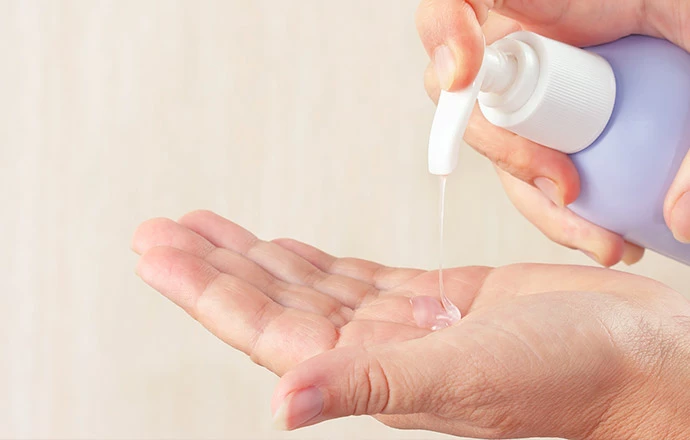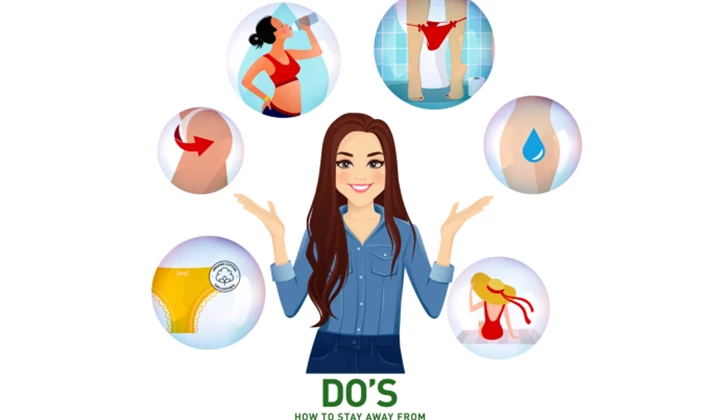Select your country
Websites worldwide
Select a country to go to the website of the respective STADA sales company.
Australia (1)
Austria (1)
Belarus (1)
Belgium (1)
Bosnia-Herzegovina (1)
Bulgaria (1)
China (1)
Croatia (1)
Czech Republic (2)
Denmark (1)
France (1)
Hungary (1)
Ireland (1)
Italy (1)
Montenegro (1)
Netherlands (2)
Poland (1)
Portugal (1)
Romania (1)
Serbia (1)
Slovakia (1)
Slovenia (1)
Spain (1)
Switzerland (1)
Thailand (1)
The Phillippines (1)
United Kingdom (3)
Vietnam (2)
Unpleasant yet very common: urinary tract infection is something women are simply forced to deal with. We are bringing you expert tips on what to do and what definitely not to do to keep your lower region – and your life – hopefully hassle free.
More than half of women will get urinary tract infection at least once in their life1, with 4 in 10 women experiencing it again within six months². Unlike men. In fact, women are up to 30 times more likely to get urinary tract infection than men3. Unfair? Yes. But manageable? In most cases, absolutely.
What causes urinary tract infection?
The infection is often caused by bacteria E. coli from your anus entering your urinary tract. Therefore, unlike the old-fashioned but still popular belief, you will not get it from sitting on a cold surface. Cold can weaken our immune system and thus contribute to worsening the condition, but it does not carry the bacteria anywhere.
Why do I keep getting urinary tract infections? There are a few factors that raise the risk of you contracting it.
Frequent sex.
Which doesn’t mean you should stop having it, just that it is wise to take some precautions when it comes to hygiene. Better safe than sorry.
Weakened immune system.
This can have many causes, including diabetes or when undergoing chemotherapy. And even if you do not have any medical condition, the general rule is to make sure you are taking proper care of yourself. Urinary tract infection is just one of the many reasons to do so.
Drinking regime.
Or rather the lack of one. Since urine flushes the bacteria out of the bladder, drinking enough fluids and thus peeing regularly is a key in urinary tract infection prevention. And do not hold that pee in. Really, just don’t.


Age.
Unfortunately, post-menopausal women are more likely to contract urinary tract infection4. The reasons are pelvic prolapse, lack of estrogen, loss of lactobacilli in the vaginal flora, increased incidence of bacteria causing the infection around urethra (the tube that carries urine out the bladder) and the fact that older women are more often afflicted by illnesses such as diabetes that we already mentioned as a factor.
Both too little and too much of it.
In general, you want your nether regions dry and clean – and that’s it. While most women don’t need to be reminded about regular washing, it is important to stress that overdoing it, especially while using scented and/or aggressive soaps, is also not the best course of action when you are trying to prevent urinary tract infection. Same goes for using spermicides as a birth control or generally using any product that disrupts the vaginal microflora.
Now what? Let’s look at some do and don’ts that should help you stay away from urinary tract infection without staying away from all the fun in life.

DON‘T
-
Don’t use scented soap for washing your vaginal area.
-
Don’t wait and hold your pee in if you need to go. Go as soon as possible.
-
Don’t stop too early when peeing, but try to fully empty your bladder
-
Don’t wear synthetic underwear, such as nylon, and stay away from very tight pants. Your vagina needs some space too.
-
Don’t drink lots of alcoholic drinks, as they may irritate your bladder. And no, they don’t count as those fluids that you need to drink in abundance.
-
Don’t have lots of sweet food or drinks, as the sugar may encourage bacteria to grow.

DO
-
Wipe from front to back when you go to the toilet to avoid bacteria transfer
-
Keep the genital area clean and dry. Cotton is your friend here
-
Change out of wet swimsuit immediately. The best reason to have two cute swimming outfits, don’t you think?
-
Drink plenty of fluids, particularly water – so that you regularly pee during the day and do not feel thirsty
-
Wash the skin around the vagina with water before and after sex. Remember, no overdoing it with soap
-
Pee as soon as possible after sex
Once you first notice urinary tract infection symptoms or burning trouble, consider visiting the doctor. Urinal Akut supports to relieve the symptoms and the health of your urinary tract thanks to the goldenrod extract that is supplemented by the unique combination of cranberries and vitamin D. It will get you back on track– like the 99%5 of women who tried it and would recommend it to their friends and family. Or to you.
Our Products
Our People

Aleksandra Gajda, International CHC Category Manager and responsible for the marketing of Urinal.
Insights-of-the-brand Urinal® by Aleksandra
We as consumers are literally being flooded with information every day, especially online. That is why I wanted to deliver to our users not only product messages but also interesting educational tips: how to keep the urinary track in good condition.
The main objective of this activation is to talk openly about female cystitis which might still be perceived as a taboo.
Although the impairments for the affected women are significant, very few want to talk about it. Pain, burning sensation during urination and urge to urinate are unbearable when experiencing urinary tract infection.
I want to reach out to the affected women to provide them with relevant health information. Sometimes small tips can have a big impact.
References:
- 1 Rahn DD. Urinary tract infections: contemporary management. Urol Nurs. 2008;28:333–41
- 2 Arnold, J.J., Hehn, L.E., Klein, D.A. (2016). Common questions about recurrent urinary tract infections in women. American Family Physician; 93(7): 560-569.
- 3 Foxman, B. (2002). Epidemiology of urinary tract infections: Incidence, morbidity, and economic costs. American Journal of Medicine; 113(Suppl. 1A): 5S-13S.
- 4 Jackson SL, Boyko IJ, Scholes D, Abraham L, Gupta K, Fihn SD. Predictors of urinary tract infection after menopause. Am J Med. 2004;117:903
- 5 Urinal Akut Observational Study, Stada, Romania and Czech Republic, December 2021




